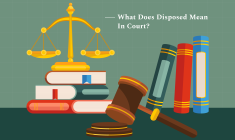Divorce is typically seen as the culmination of a prolonged and difficult process, but for most individuals, it is the beginning of a new endeavor with new problems that still need legal guidance.
A reputable family lawyer in Toronto can prove to be highly helpful for individuals in dealing with such problems after a divorce, ensuring that their responsibilities and rights are well-determined and executed appropriately.
From child custody to property settlements, there are several problems that can arise after a divorce has occurred.
Divorce never comes easy. It’s closing a very important page in life, one with its bad and good moments. It’s a leap of faith into the unknown to most—unknown, loss, and sometimes relief.
But because life after divorce hurts this painfully does not mean it gets to dictate the rest of your existence. Yes, it sounds crazy, but divorce can be the start of a new, freer life.
Key Takeaway
Life after divorce isn’t about surviving–it’s about thriving. Divorce is not the end of your book, but a turning point. Your fate is decided by how you navigate the split. A support system ensures the process becomes easier. Collaborative co-parenting resolves stability and peace. Planning for your new chapter sparks hope and meaning. With patience and compassion to yourself, you can enjoy a life that seems whole once more.
How To Survive And Thrive Through Divorce?
Life after divorce is not, I mean, “moving on,” wiping it all away. Rather, it’s rebuilding, rediscovering, and building a better, more meaningful future. With good choices, with good individuals, and with a good vision, you can get by, but really even flourish.
1. Child Custody And Parenting Time
Even with a court decree, custody arrangements, conflicts can still occur. Children grow, and needs change, and what was acceptable during the divorce may no longer be desirable.
Parents can seek to change visitation arrangements, change custody arrangements, or settle disagreements about education and sports activities. Legal advice plays a significant role in establishing a strong case to the court about changes in best interests of the child.
Divorce doesn’t just change your life when children are involved—it changes theirs too. And while you no longer live in the same home, you’ll always share the responsibility for raising them.
Cooperatively co-parenting is not becoming friends with your ex but putting your children first. Respect, open communication, and adaptability are key. If parents are cooperative, kids are more likely to adjust and not feel stuck in the middle.
It helps create a parenting plan that defines routines, duties, and ways to resolve disputes. It prevents misunderstandings, gives stability to your children, and lowers tension between your ex and you.
2. Child Support Adjustments
Orders of child support are not permanent. Life changes happen. One party may lose a job, see an altered income, or incur unforeseen expenses.
These are the kinds of changes that would make a revisit and re-examination of child support payments necessary.
A lawyer may assist in filing for modifications, making sure altered plans remain fair and equitable but also protect the fiscal well-being of the child.
3. Spousal Support Changes
Spousal support also is a category that tends to shift. For example, the paying party can become unemployed or have some sort of financial hardship, or the receiving party can remarry or become financially self-sufficient.
In either situation, either party can petition for a modification of the current order. Adequate legal counsel insures that the court considers all the factors very carefully before making any change.
4. Property Division Disputes
Sometimes property division cases linger despite the divorce decree. Property such as pensions, investment accounts, or business interests can be hard to divide and require follow-up.
When a party refuses to comply with property settlement, an attorney can compel compliance or initiate legal proceedings to resolve outstanding disputes.
5. Relocation Challenges
A parent’s move to another province or city could make it difficult to arrange custody and access. Relocation disputes rank as one of the toughest post-divorce issues, which tend to require court interference.
A lawyer may help in the presentation of evidence on the impact on the well-being of the child and negotiating new arrangements balancing parental and child stability interests.
6. Enforcement Of Court Orders
Too frequently, not both parties abide by the terms of a divorce settlement. A parent may refuse visitation, or an ex-spouse may fail to make ordered payments.
Compliance with court orders usually requires legal processes. An attorney may file compliance motions, seek wage garnishment, or request other relief to secure payoffs.
7. Post-Divorce Mediation
While lawsuits are sometimes unavoidable, mediation may be an effective way to resolve persistent disputes.
Mediation after divorce allows former spouses to negotiate modifications in less adversarial environments, often resulting in faster and more amicable solutions.
A lawyer can guide clients through the process of mediation while protecting their legal rights.
8. Provide Time to Adjust, and Stay Optimistic
He can recover from divorce. There will be lows, highs, strength, and times of feeling overwhelmed. Alright.
Allow yourself to grieve, sleep, and heal. And have hope at the same time. The future will not be a recitation of the past you envisioned.
It won’t be, but that is no promise it isn’t abundant. Most people find life after divorce richer, freer, and more fulfilling than ever.
What To Do With Your Life After Divorce?
Dissolution of a marriage is not the dissolution of legal matters. Divorce problems such as changes in child custody, modifications to support, relocation disputes, and enforcement of orders often require specialist legal advice to be resolved fairly.
Advice at such times can make things clear, reduce hostility, and bring long-term stability to all parties involved.
Here are some of the things that you can do to make your life after divorce easier:
- Plan carefully about how you divorce: You set everything else in motion with what you do.
- Make SMART goals: Divide large changes into doable steps.
- Manage your social support: Build a network of positive people.
- Strive for cooperative co-parenting: Stability for your kids is worth the effort.
- Plan your next chapter: Re-create your life and make the most of new opportunities.
Divorce is a storm, but storms pass on, paving the way for renewal and birth. Determination, grit, and hope on the horizon, indicating entry into life after divorce, one is able to transform one of life’s greatest challenges into an act of reinvention.
















